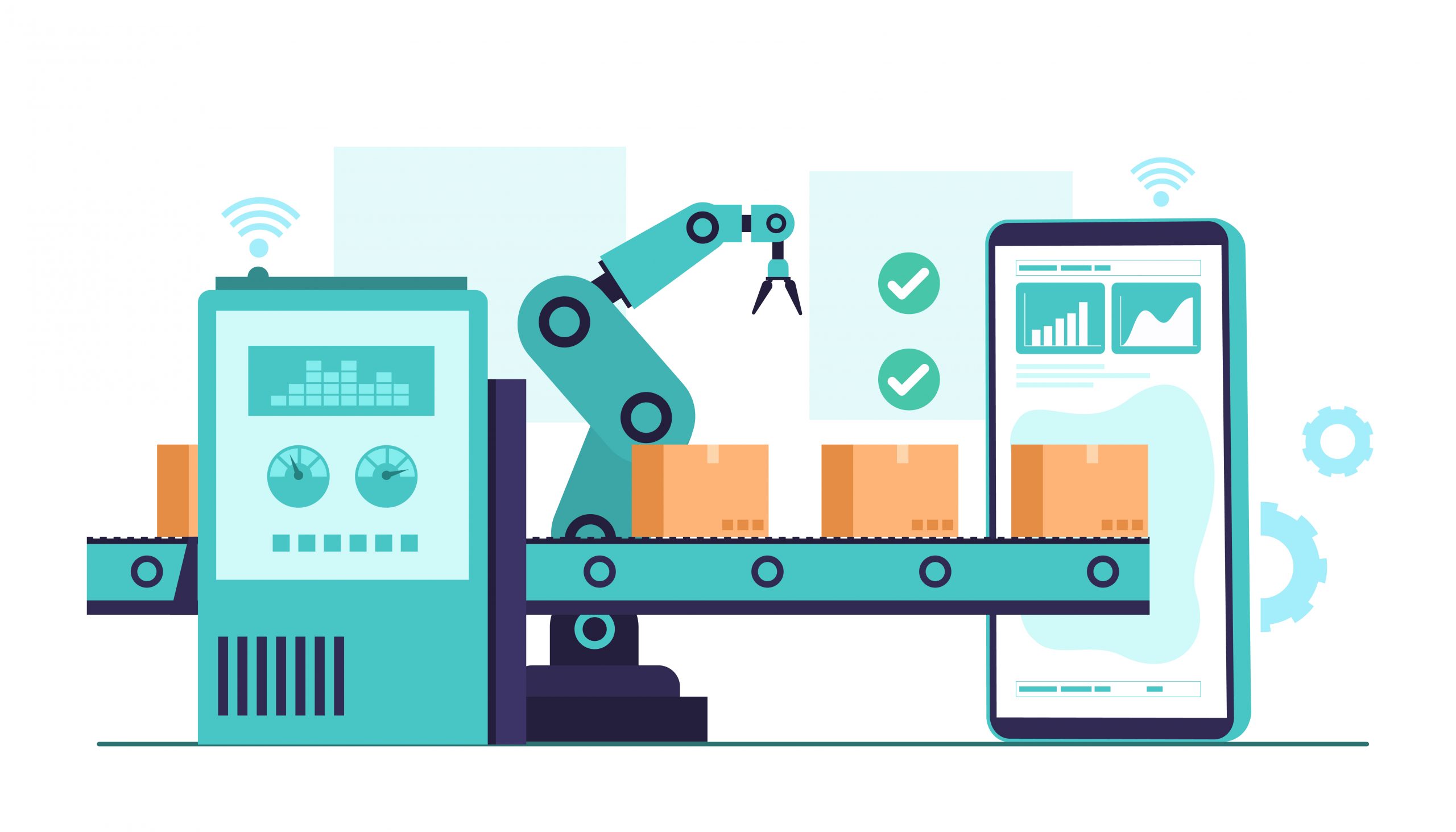The financial services industry in the Philippines is undergoing a remarkable transformation. With digital banking, fintech innovation, and a growing emphasis on financial inclusion, the sector is not only evolving but expanding at a rapid pace. For professionals looking to build or advance their careers, understanding this dynamic market is essential. In this comprehensive guide, we’ll delve into the opportunities and challenges within the Philippine financial services industry, explore key trends shaping the sector, and offer actionable strategies to position yourself for success.
Moreover, we’ll highlight how leveraging modern tools—such as VioResume’s Traditional Drag-and-Drop Resume Builder with 300+ templates, AI-Powered Resume Builder, and Automatic Job Matching—can help you craft a standout resume that aligns with industry demands and connects you with top financial employers.
The Evolution of the Financial Services Sector in the Philippines
Over the past decade, the Philippine financial services industry has experienced significant change. Traditionally dominated by banks and established financial institutions, the sector now features a burgeoning fintech scene, innovative digital payment platforms, and government initiatives aimed at boosting financial inclusion. Let’s explore some of the key trends:
- Digital Banking and FinTech Growth:
The rise of digital banking has revolutionized how Filipinos manage money. Consumers now enjoy the convenience of mobile banking, online payments, and instant fund transfers. FinTech startups are disrupting traditional banking by offering innovative solutions in areas like peer-to-peer lending, digital wallets, and blockchain-based services. - Increased Focus on Financial Inclusion:
With a significant portion of the population still underbanked, the government and private sector are investing heavily in expanding financial services to rural and underserved areas. Initiatives such as the National Retail Payment System (NRPS) and various digital payment schemes are opening up new markets and opportunities. - Regulatory Environment and Innovation:
The regulatory framework is evolving to balance innovation with stability. While increased regulations are designed to protect consumers, they also encourage traditional banks to innovate and collaborate with fintech companies, creating hybrid models that combine reliability with modern technology. - Global and Regional Influences:
The Philippines is increasingly seen as an attractive market for international investors. Global financial institutions are establishing local offices, and regional players are expanding their digital offerings. This influx of capital and expertise drives competition, innovation, and higher standards across the industry. - Remote Work and Digital Transformation:
Like many other industries, financial services have been accelerated by the shift toward remote work. Digital transformation has become a strategic imperative, pushing companies to adopt new technologies and embrace agile work practices.
Opportunities in the Philippine Financial Services Industry
The evolving financial services landscape in the Philippines creates numerous opportunities for professionals across various roles. Here are some promising career paths:
1. Digital Banking & FinTech Roles
- Job Roles:
Digital banking specialists, fintech product managers, blockchain developers, and mobile app developers. - Opportunities:
FinTech startups and traditional banks are investing in digital platforms to meet consumer demand for convenience and security. The rapid growth of digital wallets and online payment solutions is driving demand for professionals with expertise in mobile and digital technologies. - Key Skills:
Digital literacy, coding (e.g., Python, JavaScript), blockchain fundamentals, and user experience (UX) design. - Salary Outlook:
Entry-level roles may start at PHP 400,000 per year, while experienced professionals and managers can command salaries well over PHP 1,000,000 annually.
2. Financial Analysis and Data Analytics
- Job Roles:
Financial analysts, data scientists, business intelligence specialists, and risk managers. - Opportunities:
As companies embrace data-driven decision-making, the need for professionals who can analyze market trends, assess risk, and optimize financial performance is growing. Organizations across sectors, from banking to retail, rely on data insights to guide their strategies. - Key Skills:
Proficiency in Excel, SQL, Python, and data visualization tools like Tableau or Power BI. - Salary Outlook:
Salaries for financial analysts range from PHP 500,000 to PHP 800,000, while senior data roles can exceed PHP 1,000,000 per year.
3. Compliance, Risk Management, and Regulatory Roles
- Job Roles:
Compliance officers, risk managers, internal auditors, and regulatory analysts. - Opportunities:
With evolving regulations aimed at protecting consumers and ensuring market stability, financial institutions are focusing on compliance and risk management. This creates robust demand for professionals who can navigate complex regulatory environments. - Key Skills:
Knowledge of local and international regulations, risk assessment, and analytical skills. - Salary Outlook:
These roles typically offer competitive salaries, often ranging from PHP 600,000 to over PHP 1,200,000 annually for senior positions.
4. Customer Relationship and Service Roles
- Job Roles:
Relationship managers, customer service representatives, and virtual assistants. - Opportunities:
As digital channels become primary touchpoints for financial services, maintaining strong customer relationships is critical. Companies are investing in customer service technology and training to ensure a seamless client experience. - Key Skills:
Communication, problem-solving, empathy, and digital literacy. - Salary Outlook:
Entry-level customer service roles in finance may start around PHP 300,000, while experienced relationship managers can earn upwards of PHP 800,000 per year.
5. Investment and Portfolio Management
- Job Roles:
Investment analysts, portfolio managers, and financial advisors. - Opportunities:
With an influx of capital and a growing interest in wealth management, the demand for professionals who can provide strategic investment advice is on the rise. This sector is particularly dynamic, blending traditional financial expertise with innovative digital tools. - Key Skills:
Financial modeling, market research, and risk management. - Salary Outlook:
Investment roles often offer high earning potential, with salaries for experienced professionals ranging from PHP 800,000 to several million pesos annually.
Challenges in the Philippine Financial Services Market
Despite the abundant opportunities, there are challenges that professionals should be aware of:
- High Competition:
As more professionals upgrade their skills, the competition for top roles is intense. Differentiating yourself through continuous learning and professional branding is essential. - Rapid Technological Change:
Staying updated with the latest digital tools, fintech innovations, and regulatory changes is critical. Continuous upskilling is necessary to remain relevant. - Regulatory Complexities:
Navigating the intricate regulatory landscape can be challenging, especially for those new to the financial sector. Understanding compliance requirements is key to success. - Economic Fluctuations:
Global economic uncertainties and local market fluctuations can impact hiring trends and salary expectations. Being adaptable and proactive in your job search is vital.
Strategies for Success in the Financial Services Sector
To thrive in this dynamic market, here are actionable strategies for job seekers:
1. Develop a Comprehensive, Tailored Resume
Your resume is your personal marketing tool. It must clearly communicate your skills, achievements, and career progression. For the financial services sector, focus on:
- Highlighting Quantifiable Achievements:
Include metrics that demonstrate your impact, such as increased revenue, reduced costs, or improved risk management. - Detailing Relevant Certifications:
List certifications like CFA, CPA, or specialized fintech certifications that add credibility. - Emphasizing Transferable Skills:
Showcase skills such as analytical thinking, data analysis, and regulatory compliance.
VioResume’s Traditional Drag-and-Drop Resume Builder offers over 300 professionally designed templates. Whether you’re an entry-level candidate or a seasoned professional, these templates allow you to create a visually appealing and ATS-friendly resume that highlights your strengths.
🔗 Build Your Financial Resume with VioResume’s Traditional Builder
2. Leverage AI-Powered Resume Optimization
Modern recruitment often relies on Applicant Tracking Systems (ATS), making it essential to optimize your resume for these systems. VioResume’s AI-Powered Resume Builder lets you import data from LinkedIn, upload your existing resume, or create a new one from scratch. The AI then optimizes your resume for each specific job by incorporating relevant keywords and structuring your content for maximum impact.
🔗 Optimize Your Resume with VioResume’s AI Tools
3. Utilize Automatic Job Matching
Time is of the essence in a competitive job market. VioResume’s Automatic Job Matching feature can save you hours by scanning your resume and matching you with job openings that fit your skill set and career aspirations. This one-click solution connects you with relevant financial services roles from various job boards and platforms, ensuring you never miss an opportunity.
🔗 Discover Financial Job Matches with VioResume
4. Enhance Your Digital Presence
In addition to a strong resume, a robust online presence is critical. Ensure your LinkedIn profile is updated and reflects your professional journey in the financial sector. Incorporate your VioResume profile link and consider using the Video Resume Feature to showcase your communication skills and professional personality. This multi-channel approach not only reinforces your resume but also helps you stand out to recruiters.
🔗 Create a Video Resume with VioResume
5. Continuous Learning and Networking
The financial landscape is constantly evolving, so continuous learning is key. Engage in professional development through online courses, certifications, and industry events. Networking—both online and in-person—can open doors to hidden job opportunities. Join LinkedIn groups focused on fintech, digital banking, and financial analysis, and participate in webinars and virtual conferences to stay connected with industry trends.
Local Job Market Insights for Financial Services in the Philippines
The financial services industry in the Philippines is characterized by a mix of traditional banks, emerging fintech startups, and global financial institutions. Here are some local insights:
- Traditional Banks:
Major banks such as BDO, Metrobank, and BPI continue to be significant employers. These institutions are increasingly embracing digital transformation, offering roles in IT, cybersecurity, and digital customer service. - FinTech Startups:
The fintech scene in the Philippines is vibrant, with companies like PayMaya, Coins.ph, and FINTQ leading the way in digital payments, blockchain solutions, and online lending. These startups are looking for dynamic professionals with both financial expertise and technological prowess. - Remote and Hybrid Roles:
The shift to remote work has been particularly significant in the financial sector. Many companies now offer remote positions for financial analysts, compliance officers, and customer support roles, allowing professionals to work from anywhere in the country while serving global clients. - Government Initiatives:
The government is actively promoting financial inclusion through various digital banking initiatives. This creates opportunities in regulatory compliance, digital marketing, and financial technology, as institutions strive to reach unbanked populations.
Real-Life Success Stories
Case Study: Maria’s Success in FinTech
Maria, a young financial analyst from Manila, wanted to transition into the fintech industry. By leveraging VioResume’s AI Resume Builder, she revamped her resume to highlight her analytical skills, digital marketing expertise, and knowledge of blockchain technology. Using VioResume’s Automatic Job Matching feature, Maria was connected with a leading fintech startup offering remote positions. Within a few months, she secured a role that not only increased her salary but also provided new growth opportunities in a cutting-edge industry.
Case Study: Juan’s Journey in Digital Banking
Juan had been working in traditional banking for over a decade. Recognizing the shift toward digital banking, he decided to upskill by taking online courses in digital finance and cybersecurity. With his updated skills, Juan used VioResume’s Traditional Drag-and-Drop Resume Builder to create a polished resume that emphasized his decades of experience alongside his new competencies. His application caught the attention of a major digital banking institution, and he successfully transitioned into a leadership role that blended his traditional expertise with modern digital skills.
The Philippine financial services market is poised for significant growth as digital transformation, fintech innovation, and remote work reshape the industry. For job seekers, this represents an opportunity to leverage new skills, secure better positions, and drive meaningful change in their careers.
By investing in a professionally crafted, ATS-optimized resume—and by taking advantage of advanced tools like VioResume’s Traditional Drag-and-Drop Resume Builder, AI-Powered Resume Builder, and Automatic Job Matching—you can position yourself as a top candidate in this competitive market.
💡 Are you ready to unlock your career potential in the financial services sector?
Start building your professional, optimized resume with VioResume today and discover job opportunities that align with your skills and career goals.













